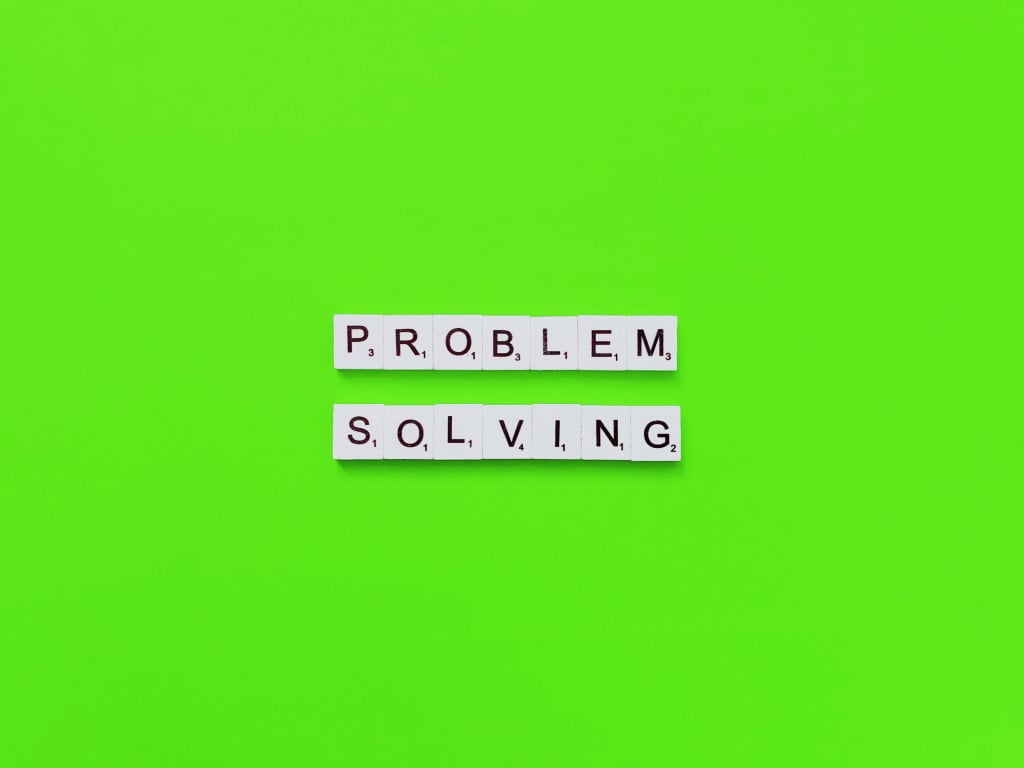Problem-solving skills are the functional abilities required for finding solutions to complex or difficult challenges. It involves identifying the problem, gathering and analyzing information, generating possible solutions, and evaluating and implementing the most promising solution. Problem-solving skills are important in a wide range of fields and are highly valued by employers. They are also essential for everyday life, as we are constantly faced with problems that we need to solve in order to achieve our goals and make progress.

Table of Contents
ToggleRelation between problem-solving skills and intellectual pleasure:
Problem-solving skills are abilities that allow people to analyze and solve problems effectively. These skills are highly valued in many areas of life, as they enable people to find solutions to a wide range of challenges they may face. Intellectual pleasure is the sense of satisfaction and enjoyment that comes from engaging in activities that challenge and stimulate the mind.
There is a strong link between problem-solving skills and intellectual pleasure, as the process of solving problems can be very intellectually stimulating and rewarding. When people are faced with a problem, their minds are challenged to come up with a solution, which can be a very satisfying experience. This is especially true when the problem is complex and requires a lot of thought and effort to solve. In addition, the sense of accomplishment that comes from successfully solving a problem can be a source of great intellectual pleasure.
Overall, problem-solving skills and intellectual pleasure are closely linked, as problem-solving activities provide a mental workout that can be both challenging and enjoyable. Developing strong problem-solving skills can be a great way to find intellectual pleasure and satisfaction in life.
How engaging in high-level or intelligent discussions can enhance problem-solving abilities?
Engaging in high-level or intelligent discussions can enhance problem-solving abilities in several ways:
- Expanding knowledge and understanding: Intelligent discussions can expose people to new ideas and perspectives, which can broaden their knowledge and understanding of a particular topic. This can be especially helpful when trying to solve problems, as having a deeper understanding of the problem can often lead to more creative and effective solutions.
- Practicing critical thinking: Intelligent discussions often require people to think critically and analyze information and arguments in order to participate effectively. This practice can help people develop their critical thinking skills, which are essential for problem-solving.
- Brainstorming: Intelligent discussions can also provide an opportunity for people to brainstorm and come up with new ideas together. This collaborative approach to problem-solving can lead to the generation of more and potentially better solutions.
- Improving communication skills: Intelligent discussions also require people to communicate their ideas effectively, which can help improve their communication skills. Effective communication is an important aspect of problem-solving, as it allows people to clearly articulate the problem and potential solutions to others.
Overall, engaging in intelligent discussions can be a valuable way to enhance problem-solving abilities by expanding knowledge and understanding, practicing critical thinking, brainstorming, and improving communication skills.
The role of critical thinking and analysis in effective problem-solving:
Critical thinking and analysis play a crucial role in effective problem-solving. It involves the ability to analyze and evaluate information, arguments, and evidence in order to make sound judgments and decisions. It is a crucial aspect of problem-solving, as it allows people to carefully consider the problem and all of its aspects rather than simply accepting the first solution that comes to mind.
The analysis involves breaking down a problem into smaller parts in order to better understand it and find a solution. It is an essential step in the problem-solving process, as it allows people to identify the root causes of a problem and come up with targeted solutions.
Overall, critical thinking and analysis are important skills that allow people to approach problems in a logical and systematic way rather than simply reacting emotionally or impulsively. By using these skills, people can more effectively solve problems and find solutions that are well-informed and effective.
The importance of being open to new ideas and perspectives in finding solutions:
Being open to new ideas and perspectives is important in finding solutions because it allows people to consider a wider range of options and potential approaches to a problem. When people are open to new ideas and perspectives, they are more likely to think creatively and come up with solutions that might not have occurred to them otherwise.
In addition, being open to new ideas and perspectives can also help people to better understand the problem itself. By considering different viewpoints and approaches, people can gain a deeper understanding of the problem and the various factors that may be contributing to it. This can be especially useful when trying to solve complex or multi-faceted problems.
Overall, being open to new ideas and perspectives is an important part of the problem-solving process, as it allows people to consider a wider range of options and gain a deeper understanding of the problem. This can ultimately lead to more creative and effective solutions.
Practical tips for improving problem-solving skills on the job

Here are a few practical tips that can help you improve your problem-solving skills on the job:
Practice regularly:
The more you practice problem-solving, the better you’ll become at it. Look for opportunities to solve problems at work and try to tackle them in a methodical way.
Stay calm:
When faced with a difficult problem, it’s important to stay calm and avoid getting overwhelmed. Take a step back, take a deep breath, and try to approach the problem with a clear head.
Break the problem down:
Complex problems can be intimidating, but they’re often easier to solve if you break them down into smaller, more manageable pieces. Try to identify the specific issues that need to be addressed, and tackle them one at a time.
Seek help:
Don’t be afraid to ask for help if you’re stuck on a problem. Sometimes, getting a fresh perspective or input from a colleague can be just what you need to find a solution.
Be open to new ideas:
Keep an open mind and be willing to consider new and creative ideas. You never know where the best solution might come from.
Learn from your mistakes:
When you encounter a problem that you’re unable to solve, take the time to reflect on what went wrong and what you could have done differently. This will help you improve your problem-solving skills over time.
The role of collaboration and teamwork in finding solutions:

Collaboration and teamwork can be very important in finding solutions to problems. When you work with others, you can combine your diverse skills, knowledge, and perspectives to come up with ideas and approaches that you may not have considered on your own. Additionally, working as part of a team can help you feel more supported and motivated, which can make it easier to tackle difficult problems.
There are a few key ways that collaboration and teamwork can be helpful in finding solutions:
Brainstorming:
Working with a group can be a great way to generate a large number of ideas in a short amount of time. By bouncing ideas off of one another and building on each other’s suggestions, you can come up with creative solutions that you might not have thought of on your own.
Leveraging diverse perspectives:
Different people have different backgrounds, experiences, and expertise, and this diversity can be a major asset when trying to solve problems. By working with a team, you can draw on a wide range of viewpoints and approaches to find the best solution.
Sharing the workload:
Solving complex problems can be a lot of work, and it can be overwhelming to try to tackle everything on your own. By working as part of a team, you can divide the work among yourselves and share the burden.
Providing support and motivation:
Working with others can provide a sense of camaraderie and support, which can be helpful when you’re facing a challenging problem. Having a team to encourage and motivate you can make it easier to stay focused and stay positive.
Importance of considering multiple options and evaluating their potential outcomes:
It is important to consider multiple options and evaluate their potential outcomes because doing so can help you make informed decisions that are aligned with your goals and values. By considering a range of options, you can identify the pros and cons of each one and weigh them against each other. This can help you choose the option that is most likely to lead to the best outcome.
Evaluating the potential outcomes of different options can also help you anticipate and plan for potential challenges or obstacles. This can increase the likelihood of success and reduce the risk of unexpected problems.
Overall, considering multiple options and evaluating their potential outcomes is an important part of the decision-making process and can help you make choices that are well-informed, strategic, and in line with your goals and values.
Using problem-solving strategies to overcome challenges and achieve goals:
Problem-solving strategies are a set of approaches that you can use to identify and solve problems effectively. These strategies can help you overcome challenges and achieve your goals by providing a structured and systematic way to approach problems and find solutions.
Here are some common problem-solving strategies that you can use:
Define the problem:
Clearly define the problem you are trying to solve, including the root cause of the problem.
Generate possible solutions:
Come up with a list of potential solutions to the problem.
Evaluate the potential solutions:
Consider the pros and cons of each solution and choose the one that is most likely to be effective.
Implement the solution:
Put your chosen solution into action and monitor its progress.
Evaluate the results:
After implementing the solution, assess its effectiveness and make any necessary adjustments.
By using problem-solving strategies, you can conquer challenges and achieve your goals in a more convenient and effective way.
The role of critical thinking and analysis in finding solutions to personal problems:
Critical thinking and analysis play a vital role in finding solutions to personal problems. These skills involve the ability to think logically and rationally, evaluate evidence, and consider multiple perspectives. By using critical thinking and analysis, you can better understand the root cause of a problem and identify the most effective solution.
Here are some steps you can take to use critical thinking and analysis to find solutions to personal problems:
Define the problem:
Clearly define the problem you are trying to solve, including the root cause of the problem.
Gather information:
Collect relevant data and evidence to help you understand the problem and its potential causes.
Analyze the information:
Use critical thinking skills to evaluate the information you have gathered and consider multiple perspectives on the problem.
Generate possible solutions:
Come up with a list of potential solutions to the problem.
Evaluate the potential solutions:
Consider the pros and cons of each solution and choose the one that is most likely to be effective.
By using critical thinking and analysis, you can find effective solutions to personal problems and make well-informed decisions.
The role of intellectual curiosity in identifying and solving problems
Intellectual curiosity is the desire to learn and discover new things. It is a key component of problem-solving because it drives individuals to ask questions, seek out new information, and explore different ideas and perspectives.
Here are some ways that intellectual curiosity can help you identify and solve problems:
Asking questions:
Intellectual curiosity can help you identify problems by prompting you to ask questions and seek out information.
Gathering information:
Intellectual curiosity can drive you to gather a wide range of information and perspectives on a problem, which can help you understand it more fully.
Exploring new ideas:
Intellectual curiosity can inspire you to consider different approaches and ideas, which can lead to more creative and innovative solutions to problems.
Seeking out new challenges:
Intellectual curiosity can encourage you to seek out new challenges and problems to solve, which can help you develop your problem-solving skills and expand your knowledge and expertise.
Overall, intellectual curiosity is an important aspect of problem-solving because it helps you identify and understand problems and come up with creative and effective solutions.
The importance of seeking help and resources when needed:
Seeking help and resources when needed is an essential part of taking care of ourselves and achieving our goals. It is a sign of strength and courage to recognize when we need assistance and to actively seek it out. There are many benefits to seeking help and resources, including
Improving mental health:
When we are struggling with mental health issues, seeking help can be an important step toward improving our well-being. Therapy, counseling, and support groups can provide a safe and supportive space to work through our emotions and challenges.
Overcoming challenges:
We all face challenges in life, and sometimes we need extra support to overcome them. Whether it is a difficult work situation, a relationship issue, or a personal struggle, seeking help can provide the tools and resources we need to move forward.
Achieving goals:
Whether we want to achieve a personal or professional goal, seeking help and resources can increase our chances of success. This could be as simple as asking a colleague for advice or hiring a coach to help us develop new skills.
Building resilience:
When we seek help and resources, we take an active role in improving our situation. This can help us develop resilience and the ability to bounce back from challenges in the future.
There are many different types of help and resources available, including therapy, counseling, support groups, self-help books and websites, and more. It is important to find the right fit for your needs and to be open to trying different approaches. Remember, seeking help is not a sign of weakness – it is a sign of strength and determination to improve your well-being and achieve your goals. Don’t be afraid to reach out and ask for help when you need it.
How cultivating a desire to learn and grow can enhance problem-solving abilities?
Having the desire to learn and grow can greatly enhance your problem-solving abilities because it allows you to approach problems with a curious and open mind rather than being limited by preconceived notions or a fixed mindset. When you have a growth mindset, you are more likely to take on challenges as opportunities for learning and improvement rather than avoiding them out of fear of failure.
This can lead to better problem-solving skills because you are more likely to persevere in the face of challenges and be open to new ideas and approaches. Additionally, a desire to learn and grow can lead you to seek out new knowledge and experiences that can broaden your perspective and give you a deeper understanding of the world, which can be invaluable in solving complex problems.
How can effective problem-solving enhance leadership skills and decision-making abilities?
Effective problem-solving skills are essential for effective leadership and decision-making because they allow you to identify and address challenges in a systematic and proactive manner. When you are able to solve problems effectively, you are better equipped to make informed and confident decisions that can have a positive impact on your team or organization.
Effective problem-solving also requires strong communication skills, which are crucial for leadership. By clearly and effectively communicating the problem, potential solutions, and the steps being taken to address the issue, you can inspire confidence and build trust with your team. This, in turn, can enhance your leadership skills by showing your team that you are capable of handling challenges in a proactive and effective manner.
In addition, the ability to solve problems effectively can also help you to be more adaptable and resilient as a leader. By being able to quickly and effectively address challenges as they arise, you can more easily navigate changing circumstances and find success in a variety of situations. This can be particularly important for leaders who are operating in fast-paced or uncertain environments.
How can effective problem-solving enhance leadership skills and decision-making abilities?
Effective problem-solving can enhance leadership skills and decision-making abilities in several ways.
First, it helps leaders identify and define problems clearly and accurately. This is important because it enables leaders to develop appropriate solutions that address the root cause of the problem rather than just addressing symptoms.
Second, effective problem-solving involves evaluating and analyzing multiple options and choosing the most appropriate solution. This helps leaders make better, more informed decisions that are more likely to be successful.
Third, effective problem-solving involves effective communication and collaboration. Leaders who are skilled at problem-solving are able to communicate their ideas and solutions effectively to their team and are able to work well with others to achieve a common goal.
Finally, effective problem-solving involves the ability to adapt and be flexible. Leaders who are skilled at problem-solving are able to respond quickly to changing circumstances and pivot as needed to find the best solution to a problem.
Overall, effective problem-solving skills are an important part of effective leadership and decision-making because they enable leaders to identify, evaluate, and solve problems effectively, which is essential for the success of any organization.
The role of effective communication and listening in resolving conflicts:
Effective communication and listening are beneficial for resolving conflicts. When two people are in conflict, it is important for them to be able to communicate clearly and openly with each other in order to understand each other’s perspectives and work towards a resolution. This requires good listening skills, as well as the ability to express oneself in a way that is respectful and constructive.
Effective communication involves more than just speaking and listening, however. It also involves body language, facial expressions, and nonverbal cues. It is important to pay attention to these nonverbal cues and to be aware of one’s own body language in order to effectively communicate and resolve conflicts.
Another important aspect of effective communication and conflict resolution is the ability to remain open-minded and willing to compromise. Both parties in the conflict should be willing to listen to the other’s perspective and consider their needs and concerns. This can help to build trust and understanding and can ultimately lead to a resolution that is satisfactory to both parties.
In summary, effective communication and listening are crucial for resolving conflicts, as they allow both parties to understand each other’s perspectives and work towards a resolution that takes into account the needs and concerns of both sides.
The role of brainstorming and idea generation in effective problem-solving:
Brainstorming and idea generation are important components of effective problem-solving. Brainstorming is a technique that involves generating as many ideas as possible in a short period of time without evaluating or criticizing the ideas. The goal is to come up with a wide variety of ideas that can be considered and developed further.
Idea generation is the process of coming up with new and creative ideas. This can involve brainstorming, as well as other techniques, such as lateral thinking, which involves looking at a problem from different perspectives and considering unconventional solutions.
Both brainstorming and idea generation can be useful in problem-solving because they help to expand the range of potential solutions that are considered. By generating a large number of ideas, it is more likely that a solution will be found that is both effective and innovative.
Brainstorming and idea generation can be done individually or in a group setting. Group brainstorming can be particularly effective because it allows for a diverse range of perspectives and experiences to be brought to bear on the problem at hand. This can lead to more creative and effective solutions.
In summary, brainstorming and idea generation are important tools for effective problem-solving because they help to expand the range of potential solutions that are considered and can lead to more innovative and fruitful solutions.
Problem-solving skills for entrepreneurs:
Problem-solving skills are essential for entrepreneurs, as they are often faced with a wide variety of challenges and opportunities that require creative and effective solutions. Some key problem-solving skills that are particularly relevant for entrepreneurs include:
Analytical thinking and problem-solving:
The ability to break down complex problems into smaller, more manageable parts and to identify the root causes of problems.
Creativity:
The ability to come up with innovative and original ideas and solutions.
Decision-making:
The ability to weigh the pros and cons of different options and choose the most appropriate course of action.
Adaptability:
The ability to quickly and effectively adjust to changing circumstances and to find solutions to new and unexpected problems.
Persistence:
The ability to persevere in the face of setbacks and to continue working towards a solution even when faced with challenges.
Communication:
The ability to clearly and effectively communicate ideas and solutions to others.
Collaboration:
The ability to work effectively with others and to bring together diverse perspectives and expertise in order to find solutions.
By developing and honing these problem-solving skills, entrepreneurs can be better equipped to tackle the challenges and opportunities that come their way.
The role of technology in enhancing problem-solving abilities:
Technology can play a significant role in enhancing problem-solving abilities in a number of ways. Some of the ways in which technology can be used to improve problem-solving skills include
Access to information:
Technology allows individuals to quickly and easily access a vast array of information and data, which can be invaluable in solving problems.
Collaboration tools:
Technology such as video conferencing and collaboration software can facilitate communication and collaboration with others, allowing for the exchange of ideas and the development of solutions in real-time.
Simulation and modeling:
Technology can be used to create simulations and models that can help individuals to understand complex systems and to test out different solutions to problems.
Algorithms and artificial intelligence:
Technology such as algorithms and artificial intelligence can be used to analyze data and identify patterns and trends, which can be useful in solving problems that are too complex for humans to tackle on their own.
Decision-making support:
Technology such as decision support systems can be used to assist individuals in making informed decisions by providing them with data and analysis.
Overall, technology can be a powerful tool for enhancing problem-solving abilities by providing access to information, facilitating collaboration and communication, and helping to analyze and understand complex systems.
Hence, Problem-solving skills are important in all areas of life, as they enable you to confidently and effectively tackle challenges that come your way. These skills involve the ability to identify and define problems, generate and evaluate potential solutions, and implement and reflect on the chosen solution.
In your personal life, problem-solving skills can help you navigate through difficult situations, make decisions, and find creative solutions to problems. In your career, these skills can help you identify and solve problems in the workplace, leading to increased efficiency and success in your job.
In addition, problem-solving skills can also be valuable in social and community situations. By being able to solve problems effectively, you can contribute to the well-being and success of your community and make a positive impact on the world around you.
Overall, the ability to solve problems is a crucial skill to have, as it can help you navigate through life’s challenges and achieve your goals.








